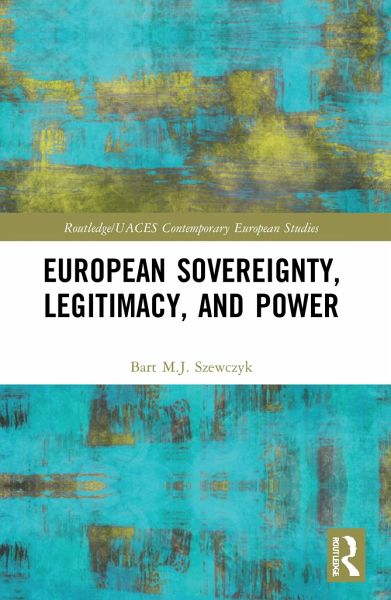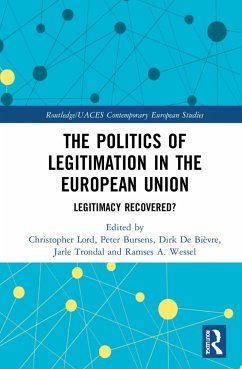
European Sovereignty, Legitimacy, and Power
Versandkostenfrei!
Versandfertig in 6-10 Tagen
43,99 €
inkl. MwSt.

PAYBACK Punkte
22 °P sammeln!
This book shows how the EU's dual sovereignty-legitimacy problem can be resolved through the political concept of European citizenship, which can serve both to define the scope of European sovereignty and to justify EU power beyond national democracy.It reconceptualizes the EU's legitimacy problem and demonstrates how sources of legitimacy can be identified and give rise to European sovereignty. It argues that sovereignty should be based on the will of citizens acting through various political bodies within the EU-city halls, regional entities, national governments, and EU institutions-and dev...
This book shows how the EU's dual sovereignty-legitimacy problem can be resolved through the political concept of European citizenship, which can serve both to define the scope of European sovereignty and to justify EU power beyond national democracy.
It reconceptualizes the EU's legitimacy problem and demonstrates how sources of legitimacy can be identified and give rise to European sovereignty. It argues that sovereignty should be based on the will of citizens acting through various political bodies within the EU-city halls, regional entities, national governments, and EU institutions-and develops a general theory, arguably applicable to any political order. The EU is an unprecedented political project that is in tension with traditional forms of state legitimation based on national democracy, as nationalists and populists throughout Europe often make clear. Against this backdrop, the book fully articulates the notion of European sovereignty and argues that the EU's sources of legitimacy are based on European citizenship and national democracy.
This book will be of key interest to scholars and students of EU politics, European integration, international institutions, and international relations.
It reconceptualizes the EU's legitimacy problem and demonstrates how sources of legitimacy can be identified and give rise to European sovereignty. It argues that sovereignty should be based on the will of citizens acting through various political bodies within the EU-city halls, regional entities, national governments, and EU institutions-and develops a general theory, arguably applicable to any political order. The EU is an unprecedented political project that is in tension with traditional forms of state legitimation based on national democracy, as nationalists and populists throughout Europe often make clear. Against this backdrop, the book fully articulates the notion of European sovereignty and argues that the EU's sources of legitimacy are based on European citizenship and national democracy.
This book will be of key interest to scholars and students of EU politics, European integration, international institutions, and international relations.














